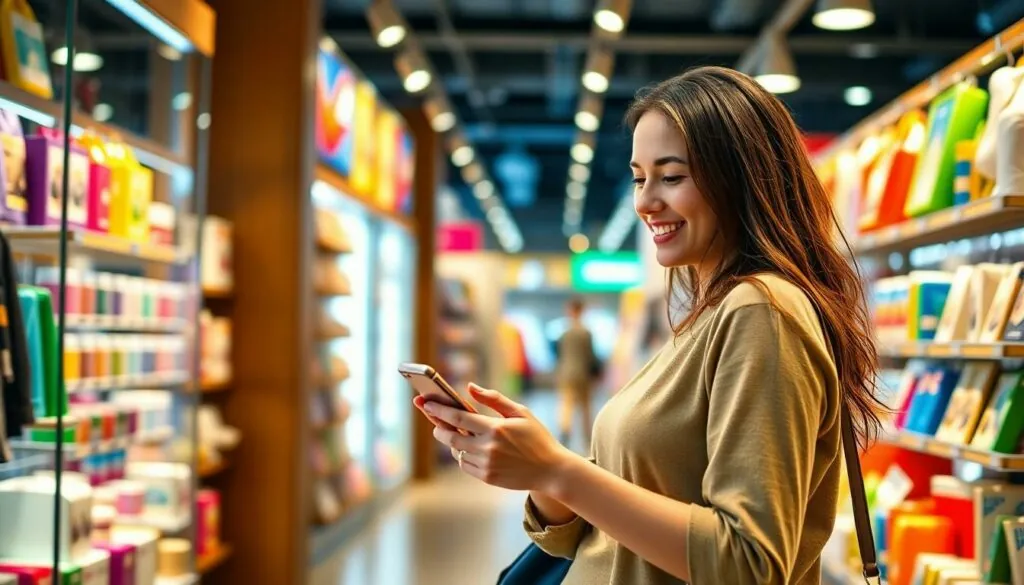Table of Contents
ToggleIn today’s fast-paced world, retail isn’t just about brick-and-mortar stores anymore; it’s about the magic that happens right in the palm of your hand. Mobile apps for retail have transformed the shopping experience from mundane to downright exhilarating. Imagine browsing through your favorite store while lounging on your couch, all without the hassle of pants. Yes, please!
These apps are not just convenient; they’re packed with features that make shopping feel like a game. From personalized recommendations to exclusive discounts that make your wallet sing, they offer a treasure trove of benefits. Retailers have jumped on the app bandwagon, and it’s time for shoppers to reap the rewards. Whether it’s snagging the latest trends or scoring deals that make you feel like a savvy shopper, mobile apps are changing the retail landscape for good.
Overview of Mobile Apps for Retail
Mobile apps for retail significantly enhance customer engagement and streamline shopping experiences. These applications allow users to browse products, access promotions, and complete purchases swiftly. Features such as user-friendly navigation and search enhancements help customers find desired items effortlessly.
Data shows that 79% of mobile users prefer to shop via apps due to convenience and speed. Personalization plays a crucial role in this shift. Retail apps analyze user behavior and preferences to offer tailored recommendations. Such customization not only improves user satisfaction but also drives sales conversions.
Moreover, in-app notifications alert shoppers to flash sales and special offers. Customers benefit from exclusive discounts that may not appear in stores or on websites. Mobile apps create an ecosystem where loyalty rewards encourage repeat purchases, further enhancing customer retention.
The integration of augmented reality technology in retail apps fosters an interactive shopping experience. Virtual try-ons for clothing or makeup offer customers the chance to visualize products before buying. This technology can reduce return rates and improve the overall shopping experience.
Security also remains a priority. Retail apps use sophisticated encryption methods to protect customer data during transactions. Shoppers feel safer entering personal and payment information, leading to increased trust and higher conversion rates.
In sum, mobile apps for retail transform how consumers interact with brands. These applications provide convenient access to a vast array of products while fostering a personalized shopping journey that meets today’s digital expectations. As the landscape evolves, embracing mobile app technology becomes essential for retailers aiming to meet consumer demands.
Benefits of Mobile Apps in Retail
Mobile apps offer numerous advantages that enhance the retail experience, driving customer satisfaction and sales growth.
Enhanced Customer Engagement
Mobile apps dramatically improve customer engagement. They provide personalized content that resonates with individual preferences, creating a tailored shopping journey. Interactive features, like in-app messaging and personalized notifications, keep customers informed about new arrivals and special promotions. User feedback is easily gathered, allowing retailers to adapt quickly to customer needs. Enhanced engagement strategies, such as loyalty programs and gamification, further encourage repeat visits and interactions. Notably, 79% of mobile users favor shopping through apps, underscoring their effectiveness in attracting and retaining customers.
Improved Sales and Revenue
Mobile apps play a significant role in boosting sales and revenue. Streamlined purchasing processes remove barriers, allowing customers to complete transactions quickly. Exclusive discounts and loyalty rewards incentivize users to shop more frequently through the app. Data shows that retailers with mobile apps experience higher conversion rates, as a result of personalized recommendations enhancing the shopping experience. Integrating secure payment options within apps fosters customer trust, ultimately leading to increased spending. Retailers leveraging app-based strategies report up to a 30% increase in revenue compared to traditional shopping methods, showcasing the financial potential of mobile technology.
Key Features of Retail Mobile Apps
Retail mobile apps incorporate vital features that enhance user experiences and streamline shopping. Effective design and functionality are essential for user satisfaction, facilitating seamless interactions throughout the app.
User-Friendly Interface
User-friendly interfaces simplify navigation, making it easy for shoppers to access products and services. Retail apps typically employ intuitive layouts, allowing customers to browse effortlessly. Prioritizing clarity, developers often use familiar icons and menus. Customers appreciate the option to filter products by categories or preferences, which accelerates the shopping process. Quick loading times also play a significant role, with data indicating that 79% of users prefer apps due to their speed. Simple registration and login features further enhance usability by reducing barriers to entry.
In-App Purchases and Payments
In-app purchases and secure payment options are fundamental for modern retail apps. Retailers often integrate multiple payment methods, catering to diverse consumer preferences. Users enjoy the convenience of completing transactions within the app without needing to visit external sites. Streamlined checkout processes reduce transaction time and enhance overall satisfaction. Additionally, integrating digital wallets and buy now, pay later solutions increases conversion rates and customer loyalty. Data supports that apps featuring efficient payment systems drive significant sales growth, as users value ease of use and security in their shopping experiences.
Top Mobile Apps for Retail
Mobile apps revolutionize the retail landscape by enhancing shopping convenience and engagement. Below are prominent mobile apps that offer significant features and benefits to users.
App 1: Features and Benefits
Amazon boasts a vast selection of products, attracting millions of users. Personalized recommendations drive user engagement based on shopping history and preferences. Fast shipping options, including same-day delivery in select areas, heighten customer satisfaction. Trust in security comes from robust encryption, ensuring safe transactions. Users appreciate the easy navigability, leading to smoother shopping experiences.
App 2: Features and Benefits
Shopify empowers retailers to create customized shopping experiences. The app provides interactive features, like augmented reality for product visualization. Users benefit from streamlined payment processes and various options, accommodating diverse preferences. Built-in analytics track user behavior, allowing retailers to refine offerings continuously. Integration of loyalty programs drives customer retention and returning visits.
App 3: Features and Benefits
Walmart’s mobile app facilitates in-store and online shopping seamlessly. Users gain access to exclusive app-only discounts, boosting overall savings. The easy-to-use interface supports quick browsing and ordering, making shopping efficient. In-app features, such as store maps and product availability checks, enhance the in-store experience. User feedback systems encourage consistent improvement and satisfaction.
Future Trends in Retail Mobile Apps
Retail mobile apps are evolving rapidly, shaping the future of the shopping experience. Artificial intelligence plays a prominent role in this evolution, enabling more advanced personalization. Apps analyze shopping behaviors, tailoring product suggestions to individual preferences. With AI-driven insights, retailers can create a more relevant user experience and increase customer loyalty.
Augmented reality continues to gain traction as a necessary feature in retail apps. This technology allows customers to visualize products in their own space, enhancing confidence in purchase decisions. By facilitating virtual try-ons, AR reduces return rates and improves overall satisfaction.
Voice commerce is another trend gaining popularity. Customers increasingly prefer making purchases using voice commands, making accessibility simpler. This convenience encourages quick transactions and higher sales conversions.
Sustainable practices are becoming integral in retail apps. Eco-friendly features attract conscious consumers seeking to make ethical purchases. Retailers that prioritize sustainability through their apps can strengthen brand loyalty and customer relationships.
Payment options are expanding within mobile apps due to consumer demand. Integrating buy-now-pay-later solutions offers flexibility, attracting a broader demographic. Additionally, digital wallets streamline purchases, promoting efficiency during checkout.
Data security remains a top concern among users. Retail apps focus on utilizing advanced encryption methods to protect personal information. Trust is vital, and secure apps significantly enhance consumer confidence and engagement.
Gamification strategies engage users more effectively. Implementing rewards for app usage fosters interaction, driving repeat visits. Retailers that incorporate these features can expect increased customer retention and satisfaction.
The future of retail mobile apps centers on innovation and user experience enhancement. Keeping up with these trends will be essential for retailers striving to meet or exceed customer expectations.
Mobile apps are undeniably reshaping the retail landscape by offering unparalleled convenience and a personalized shopping experience. As retailers continue to innovate and adapt to consumer preferences the importance of these apps will only grow. Features like augmented reality and advanced personalization are setting new standards for customer engagement.
With increased security measures and diverse payment options retailers can build trust and foster loyalty among shoppers. The future of retail mobile apps promises even more exciting developments as technology evolves. Embracing these changes is vital for retailers aiming to thrive in a competitive market.







